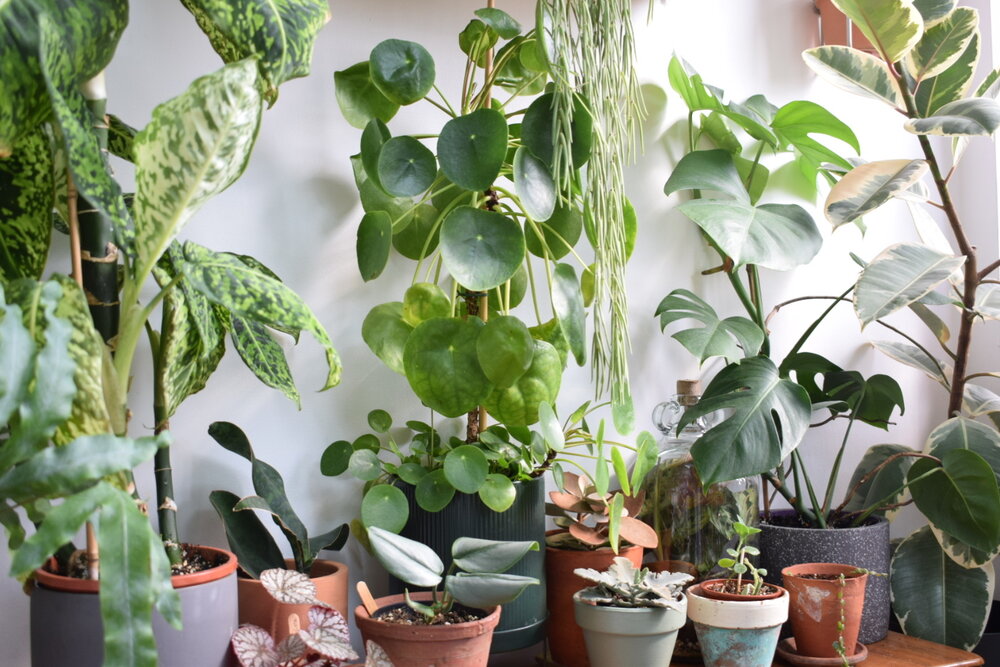Allergy Relief
Researchers found that rooms with plants have less dust and mould than rooms without any foliage. Leaves and other parts of the plants act as natural filters to catch allergens and other airborne particles which can be very handy for keeping the kids well year round! Common low-light houseplants like Chinese evergreen or the peace lily can do the job. Violets and other plants with textured leaves might be even better trappers. Avoid plants with pollen or spores just in case the kids do have any allergies otherwise it will be a trip to the shops for some antihistamines! Of course, plants in one room doesn’t mean that the rest of the home won’t be susceptible to mould. Should you still suspect that there is mould in your home, you should get in touch with a company offering mold removal in Conifer, CO, or wherever it is you are, to get this removed so that you can start afresh with that room, and maybe add a few plants to prevent future problems.
Happiness
Plants not only can brighten up your surroundings, but they can lift your mood which can be key if you’re bogged down. People who live in houses with plants tend to feel better about themselves, worry less, and have fewer days when they are sick. Flowers in particular are a good pick-me-up. So liven up your room with blooms, like a lipstick plant, or a fresh bouquet and see if your outlook improves.
Spider Plants for Moisture
Boilers and air conditioners can sap humidity, especially in the winter. That can raise your chances for catching a cold or the flu, or make your skin itch. Houseplants add moisture to the air – one study found a collection of spider plants boosted the relative humidity in a bedroom from 10% to a more comfortable 30%.
Air Purifiers
Carpets, paint, cleaners, printer toners and inks, and many other indoor objects give off pollutants called volatile organic compounds (VOCs). They can build up in the air and irritate you all over, worsen asthma, or make it hard for you to breathe in general. Houseplants can soak up VOCs. Some good air-scrubbers are English ivy, asparagus fern, and dragon tree.
Relaxing Lavender
This fragrant purple plant has been an important herbal medicine for centuries and is still used for kids today in soaps, bathtime bubble fluid and talc. You can inhale lavender oil or massage it on your scalp for aromatherapy once the kids are in bed for that full relaxation feeling. Some studies suggest it may help calm you and help lower any anxiety which is key after a long day with the kids!
Restful Sleep
Plants take in carbon dioxide and give off oxygen, it’s how they turn sunlight into food, a process called photosynthesis. Some, like gerbera daisies keep giving off oxygen even after the sun goes down which is amazing to have around the house. Put a few cheerful pots in your bedroom and the extra oxygen may help you sleep more soundly, and a few in the kids rooms too!
Stress Relief
Feeling the weight of daily pressures of parenthood or work? Try and add a heart-leaf philodendron or a snake plant to your décor. Several studies have measured people’s levels of blood pressure, heart rate, and the stress hormone cortisol while they handled a tough task or were under mental stress and tested the same people when they are surrounded by these plants, being around plants has a calming effect on people and it really does help.
Sharper Focus
Plants can almost be like caffeine! They make it easier to concentrate on your tasks, and strengthen your memory. Students in classrooms with three plants by their desks performed better on maths, spelling and science tests than kids in classrooms without any greens. Bring home a golden pothos or a bamboo palm and you just might clear that to-do list.
Better Mental and Emotional Health
Some therapists use gardening to help treat depression, schizophrenia, and other psychiatric conditions (such as hard parenting!). Learning to nurture a living plant helps to lower anxiety, improve attention, and lessen the severity of depression which is proven in many studies. Plants also might help people recovering from trauma, as well as those with dementia so if you have a loved one with dementia, green the space up!

